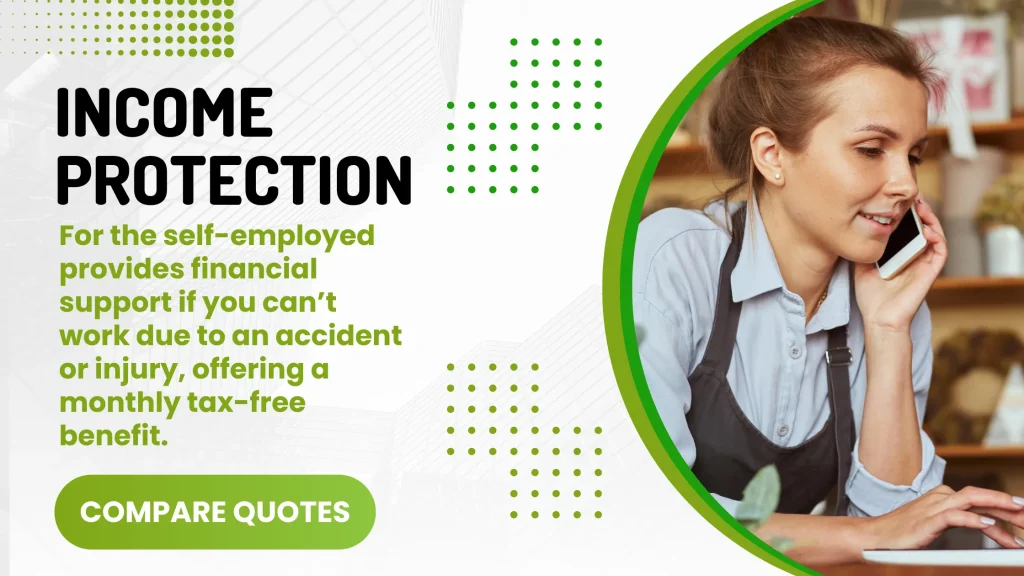
Income protection insurance pays a monthly payout to those unable to work due to sickness or accident.
This insurance product is accessible to both traditionally employed and self-employed people and can be very beneficial if sick pay and other traditional benefits are unavailable.
Claybrooke can help to compare different income protection insurance policies for the self-employed from different providers across the United Kingdom.
Why You May Need Income Protection for the Self-Employed
When transitioning from traditional employment to self-employment, having insurance to protect your income is vital. Employers generally offer company-sponsored sick pay and/or sickness insurance.
Becoming self-employed adds the complexity of determining how to cope financially if you are unable to work due to an injury or illness.
Self-employed income protection insurance is suited for those who run their own company or work for themselves.
The government provides an allowance for those who cannot work, just over £100 a week.
This is sometimes insufficient to cover expenses and bills from one month to the next.
With income protection policies for the self-employed, it is possible to receive approximately 50 to 70 per cent of the income that was being earned should you not be able to work for some reason.
How Income Protection for the Self-Employed Works
Income protection insurance works the same way for self-employed people as for traditionally employed people.
Self-employed income protection will provide the policyholder with a monthly payout when he or she cannot work due to an accident or illness, which can be used to cover monthly expenses.
In the United Kingdom, self-employed income protection policies will usually cover approximately 50 to 70 percent of the previously earned income.
It is important to note that although self-employed income protection and traditional income protection are very similar, the calculation of the policyholder’s income and the percentage received will vary.
This is usually based on the person’s share of annual profits before taxes.
However, like traditional income protection products, the policyholder can use the monthly payment to pay bills, mortgages, or personal loans.
Length of Self-Employed Income Protection Policies
Like traditional income protection policies, a self-employed income protection policy falls into one of two categories: long-term protection or short-term protection.
Long-term protection policies will pay benefits to the beneficiary for as long as needed or until the policy term has come to an end (typically retirement), while short-term income protection policies will only pay benefits to the beneficiary for a period of up to 12 months.
Information on Unemployment Insurance for the Self-Employed
Self-employed people are often interested in purchasing unemployment insurance. While this is an option, the criteria to qualify for this policy are often much stricter for the self-employed.
Click To Compare QuotesThe criteria for claiming self-employed workers are often hard to prove since the employer must be able to identify that the business has stopped but not because of the worker.
For those interested in learning more, the advisors at Claybrooke can help explain unemployment insurance in detail.
Using Claybrooke to Compare Policies
Visiting each provider for self-employed income protection insurance and comparing quotes can be tedious work, so the professionals at Claybrooke are here to help.
Our knowledgeable team will use our specialised comparison system to help match policy seekers with an insurance product that will fit their needs and budget.
A Claybrooke advisor can help guide policy seekers through the process and explain the details of the policy at every step.
